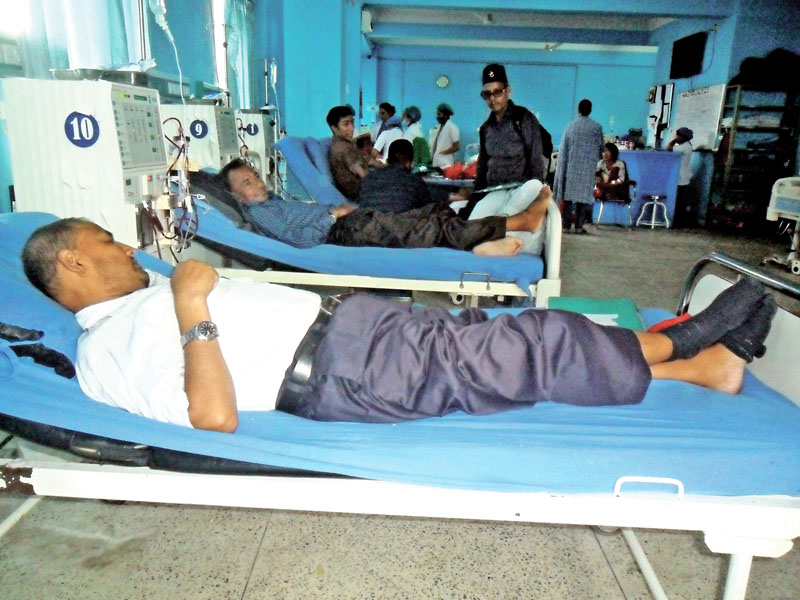Renal failure rampant among migrants
Kathmandu, September 1
On an average three migrant workers return home from Gulf countries with one or another kidney problem daily, according to doctors in hospitals this correspondent visited.
The majority of returnees suffering renal failure come from Dubai and Saudi Arabia. Seventy such returnees are undergoing dialysis at National Kidney Centre, Dr Rishi Kumar Kafle, who is executive director at Sumeru Hospital, Dhapakhel, and National Kidney Centre, told THT.
“Most of them suffer kidney failure, mainly due to dehydration caused by the sweltering heat in the Gulf states,” said Dr Kafle.
“It seems that migrant workers tend to avoid drinking water because they can’t afford to buy expensive bottled water while at work,” Dr Kafle adds. “Companies that employ migrant workers do not provide drinking water,” Hem Rana of Baglung, Jaiti Ward No 2, who returned from Dubai and is undergoing treatment at National Kidney Centre, said.
“People living in hilly areas are not used to work in the hot climate of Gulf countries. Their body isn’t accustomed to living and working in such climate. In addition, people do not work for prolonged hours in Nepal. As a result they suffer body ache and to relieve their pain they take painkillers which damage kidneys. The kidneys can suffer damage within six months if there is regular intake of toxic substances and persistent dehydration,” Dr Kafle said.
According to him, consumption of high protein diet, such as red meat, also leads to kidney failure among the migrant workers.
Madan Pun, 29, who has to undergo dialysis, consumed red meat regularly while in Dubai. He returned three months ago after his kidneys failed.
“Stress is another factor that triggers kidney diseases. When there is stress blood pressure increases, which is harmful for the kidneys,” Dr Kafle said.
Pun agrees. “You need to work long hours and work perfectly, which is very stressful. I was taking medicines for high blood pressure too,” Pun told THT.
“Migrant workers should drink at least three litres of water daily, avoid diet rich in high protein, relieve stress and have a regular check up of kidneys,” suggests Dr Kafle.






